SU Elections 2020 Campus Saint-Jean Forum Recap
The forum was short with some races receiving no specific questions aimed at them
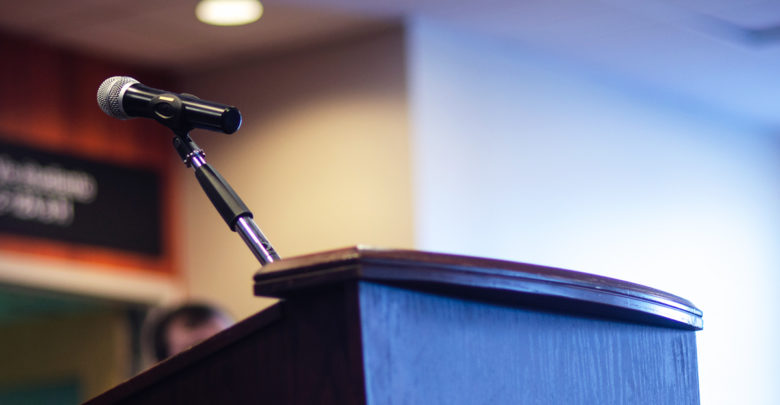 Helen Zhang
Helen ZhangCampus Saint-Jean concerns reigned supreme during the fifth forum of the University of Alberta 2020 Students’ Union election.
Here are some of the highlights of the forum:
- President: no questions asked
- Vice-president (student life): ensuring North Campus services were extended to Campus Saint-Jean
- Vice-president (external): Alberta’s Budget 2020
- Vice-president (operations and finance): Gender-neutral bathrooms at CSJ and addressing CSJ needs
- Vice-president (academic): ‘yay’ or ‘nay’ to weekend midterms
- Board of Governors representative: CSJ specific plans or no?
Presidential candidates no longer stars of the show
Little attention was paid to the presidential race at the Campus Saint-Jean forum, with no audience questions specifically directed to the candidates.
Yiming Chen, third-year international student and current arts councillor on Students’ Council, did not attend the forum.
Joel Agarwal, sixth-year biology student and current vice-president (academic), started the forum by acknowledging the diversity of the University of Alberta’s campus. He said that in the face of adversity, students need a president who hears all students and he will fight for the implementation of student rights through the second phase of the Student Charter of Rights, currently being worked on by current Students’ Union President Akanksha Bhatnagar.
“We so desperately now, more than ever, need a Students’ Union that not only listens, but acts,” Agarwal said. “We need a Students’ Union that prioritizes all campuses… that is dependable…. Affordability, accessibility, and quality are now just becoming buzzwords.”
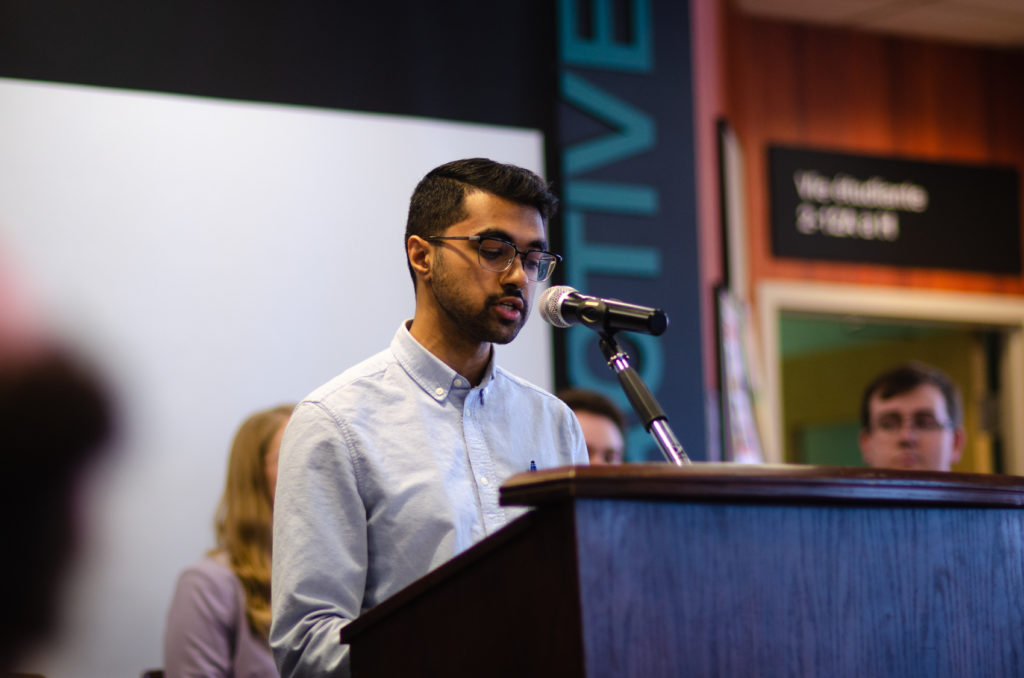
Luke Statt, fifth-year business student and current Students’ Union vice-president (operations and finance), focused his opening statement on issues facing Campus Saint-Jean exclusively. Statt pointed out that in his current position, he worked in conjunction with L’Association étudiante des universitaires de la Faculté Saint-Jean (AUFSJ) — the faculty association for the French campus — to replace their catering service. To continue working with AUFSJ, Statt said he would share Students’ Union sponsorships and supply AUFSJ with a $15,000 granting pool available to all Student Representation Associations.
“I want to keep recognizing that Campus Saint-Jean students know their own need best,” Statt said. “I know that the most effective way for the Students’ Union to address your concerns on this campus is to work collaboratively with AUFSJ.”
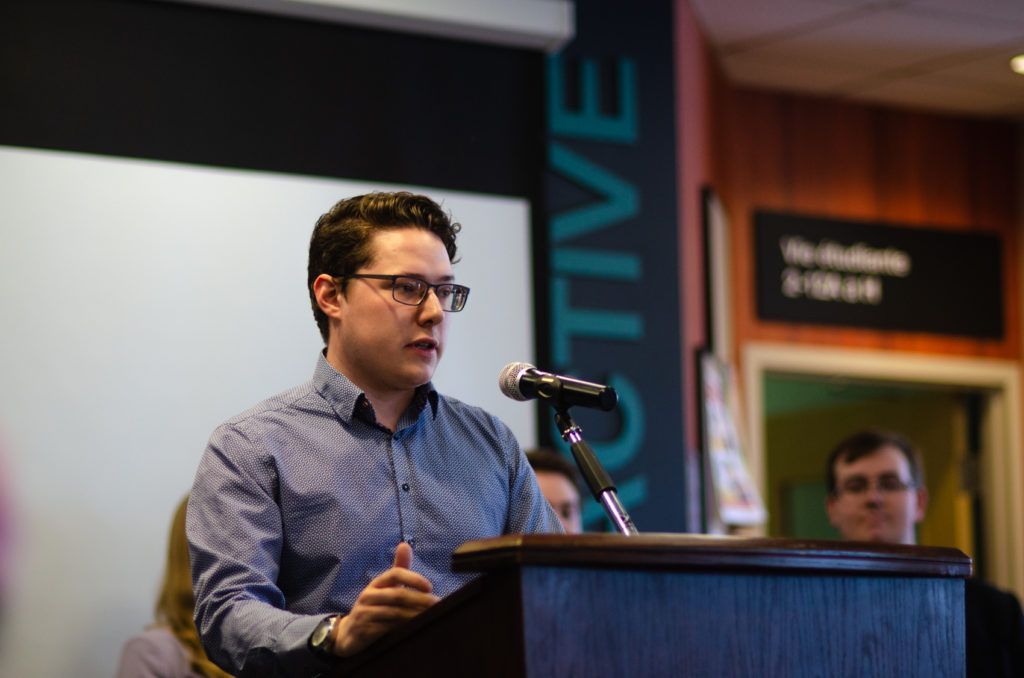
— Khadra Ahmed
Both VPSL candidates agree CSJ and other student groups will lead, they will support
The two vice-president (student life) candidates agreed on several points, while diverging on specifics of how to connect Campus Saint-Jean to North Campus.
Talia Dixon, a third-year student double majoring in women’s and gender studies and political science and Students’ Council arts councillor, said she is the most interdisciplinary candidates in years to run for the position.
Dixon added how Campus Saint-Jean students are often only relegated to a single bullet point in a candidates platform.
“[Campus Saint-Jean students] are an afterthought — a campus we only speak to when it is time to get your votes,” she said. “I will change that.”
“Four kilometres should not be the difference between receiving representation and support and fighting for you,” Dixon added. “If you want a vice-president (student life) that will close that four kilometre gap, vote for [me].”
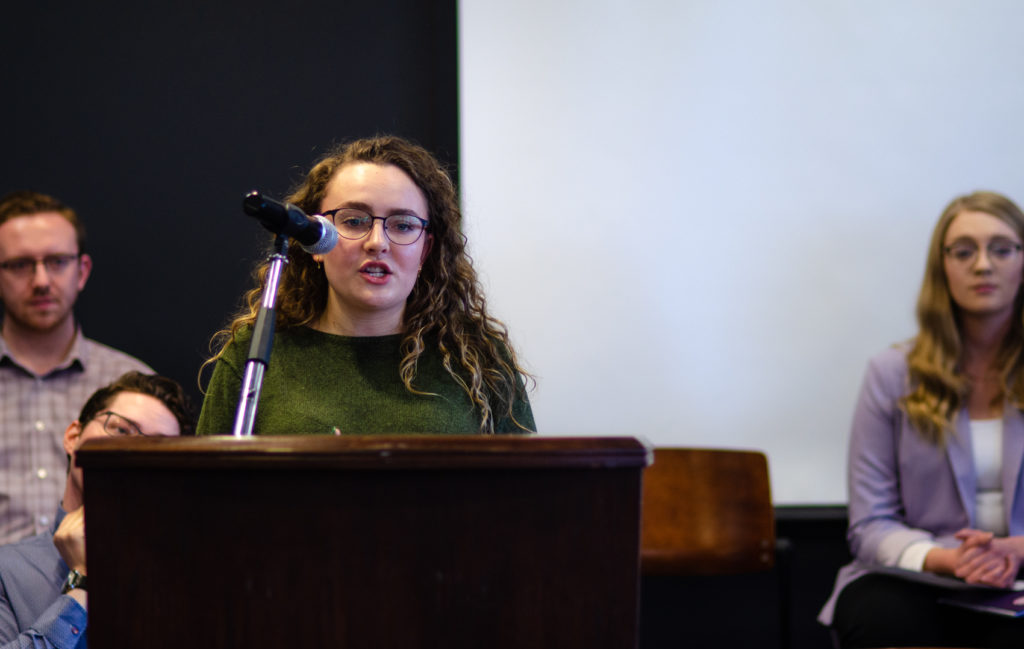
Dixon pledged to connect students at Campus Saint-Jean with accessible transportation to events taking place at North Campus, like RezFest and Aboriginal Awareness Week.
Katie Kidd, a fourth-year student in secondary education and Students’ Council education councillor, said when she began at university she was excited to receive an offer of acceptance from the Campus Saint-Jean. She ultimately decided not to attend at the French campus because she “feared” not being connected to North Campus.
“I know Campus Saint-Jean students have a unique university experience but that does not mean the Students’ Union can forget about you,” Kidd said. “How can someone feel that their Students’ Union supports them if there is no sign of them here at Campus Saint-Jean?”
Kidd committed to installing more Students’ Union TVs to advertise upcoming events and programming. If elected, she resolved to create a Students’ Union mental health strategic plan to identify gaps in service and ensure that Campus Saint-Jean students were included in services.
“I will ensure that we are diversifying our wellness services so that French students can seek help in their language of choice,” she added.
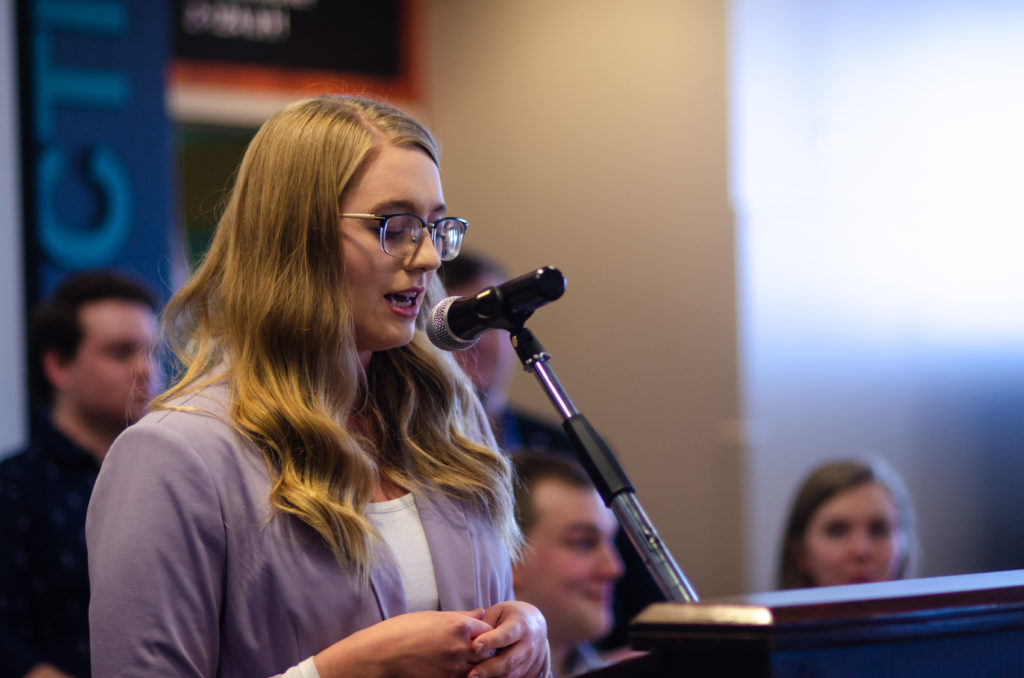
Both candidates agreed that Students’ Union materials about events and services offered to students were not always translated well or posted at the same time as on North Campus. Further, the two said they would push to ensure a gender-neutral bathroom was included at Campus Saint-Jean.
Additionally, the pair of candidates agreed that when it comes to supporting student groups and AUFJS, they would listen first and act upon concerns with solutions students actually want.
— Adam Lachacz
VPX focus on newly released provincial budget
Both questions addressed to the vice-president (external) race dealt with Budget 2020, released by the provincial government on February 28.
The candidates were asked about their goals for extending deferred maintenance funding in the recently-released provincial budget. In the budget, the infrastructure maintenance program was restored after being cut in 2019 but frozen at the same amount, $119 million, for the next three years.
Rowan Ley, fourth-year political science student and current Board of Governors representative, said convincing the government to fund deferred maintenance boils down to reminding them about buildings being an asset to the Crown.
“Show them how through a short term investment now, we can avoid the long-term accumulation of financial liabilities through deferred maintenance on university buildings,” he said.
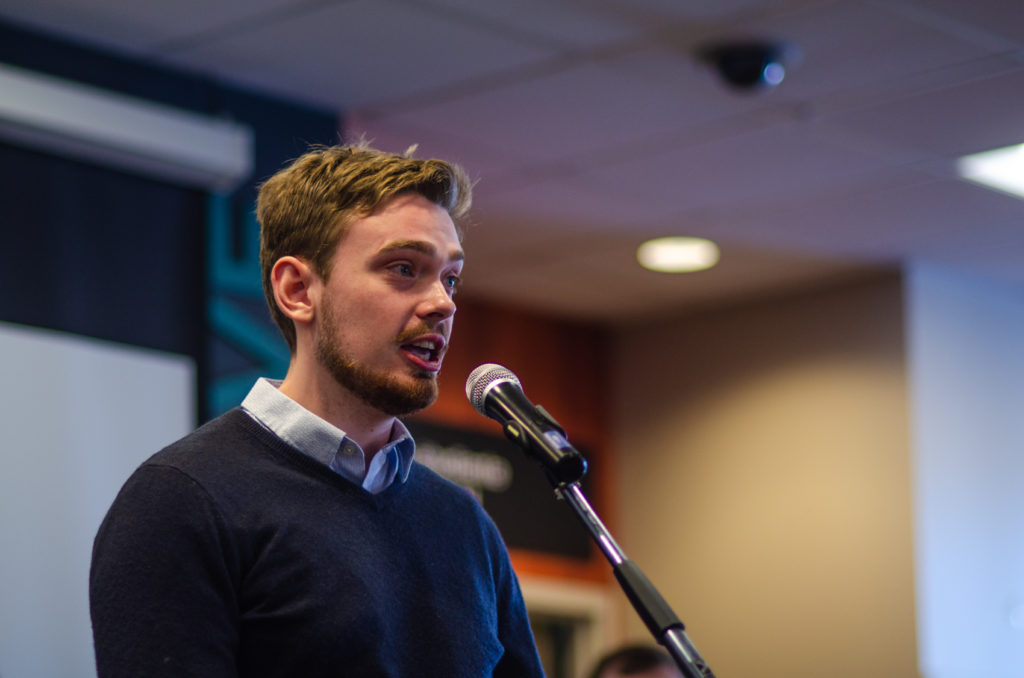
Ley also said he thinks the government would be open to this idea because it aligns with its priority of reducing debt. If they are not open to negotiating this, he added, they can raise the idea with the public, so constituents can identify this as a priority.
Robert Bilak, fourth-year political science student and speaker of Students’ Council, called the funding a “drop in the bucket” for what is required. He said he would address the issue to the government and citizens by framing it as debt. However, he also said he would not just focus on provincial advocacy, but also with the federal government programs including the Green Infrastructure Fund, and the city.
“I also think dividing the issue of deferred maintenance with sustainability allows us to expand the places where we can get money,” he said.
The other question asked to the candidates was about advocating for student aid. In the provincial budget, student aid grants and scholarships were frozen at over $47 million and $54 million respectively for the next year. The candidates were asked how they will ask the province to increase student aid, especially as tuition is also increasing.
Bilak said he was “unpleased” with the freezing of grants and financial aid. For him, the best way to frame the ask was in terms of employment and jobs. He would frame increased funding as lowering the barriers to post-secondary, ultimately creating more skilled workers and competitive job market. This, he added, would in turn make them more productive in the future, and allow for more hiring.
“In the future, [students] can go forward, they can do more, and they can be more productive for Alberta, which of course then allows them to hire more people and create more jobs,” he said. “It’s a very positive cycle.”
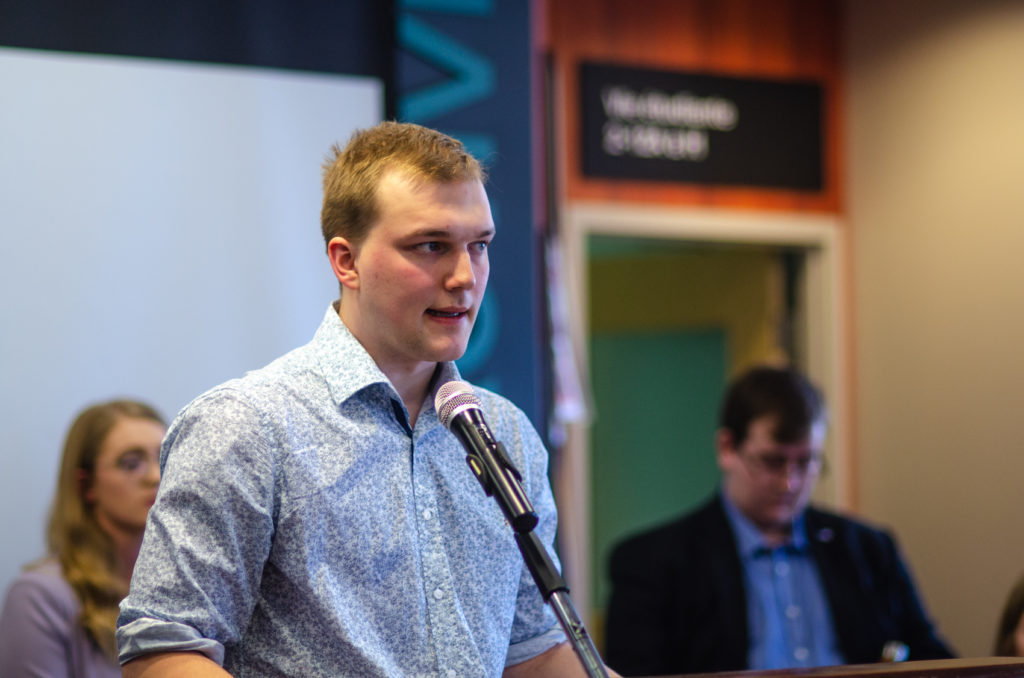
In his response, Ley said when reaching out to ordinary Albertans to “get them on our side” for better student aid, he would frame it in terms of importance to economic opportunity and social mobility into the middle class.
He added that asking the Minister of Advanced Education himself is not going to be effective. Rather, they need to get the people of the province to side with them through his public outreach campaign.
“I think that is a lens that is not often used in our public advocacy today,” Ley said. “It will resonate a lot with people of all political backgrounds, including the government that’s in power right now.”
— Kate Turner
Gender-neutral washrooms versus compost bins: VP Ops-Fi candidates view Campus Saint-Jean needs differently
Vice-president (operations and finance) candidates had differing visions for the future of Campus Saint-Jean operations.
Alana Krahn, fourth-year business economics and law student, said she wanted to work towards increasing education accessibility. For Krahn, this would include creating the first gender-neutral washrooms at Campus Saint-Jean, as well as bringing over the North Campus initiative of free menstrual products.
“How accessible is your education if you can’t even be accommodated to feel safe and comfortable using the washroom?” Krahn asked regarding gender-neutral washrooms.
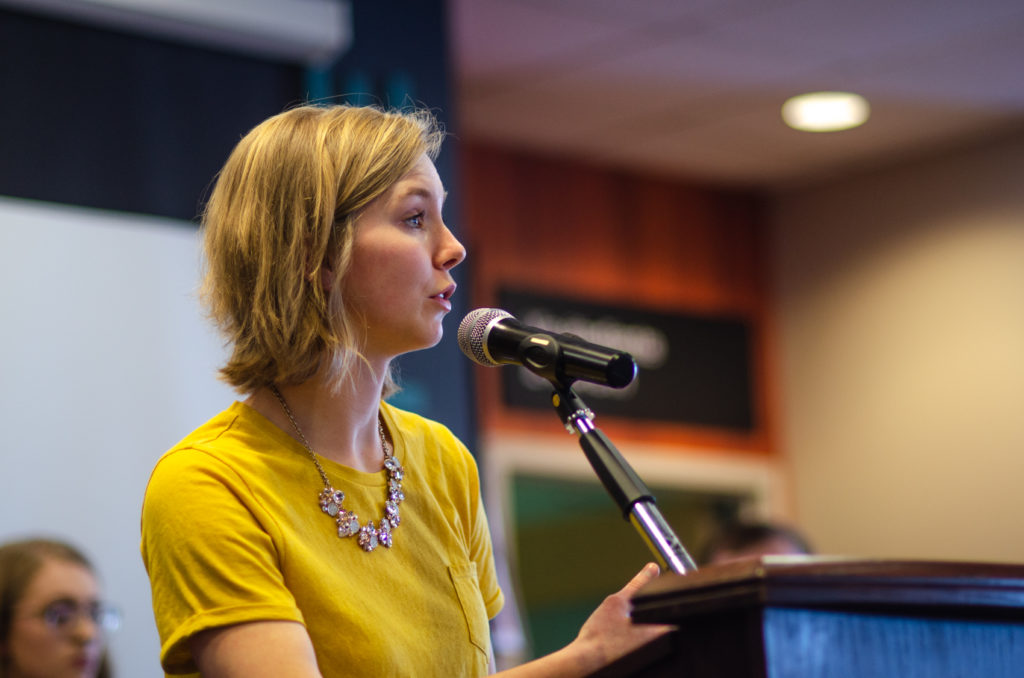
Samantha Tse instead focused on supporting Campus Saint-Jean’s cafeteria services and looking into creating another compost bin to further sustainability efforts for the campus. Tse also mentioned she would like to make Students’ Union offered funding more accessible to Campus Saint-Jean students by adding a keyword search function to the funding portion of the Students’ Union website.
“I know a lot of you can’t access the North Campus services because you will not go twenty minutes away to access one service,” Tse said.
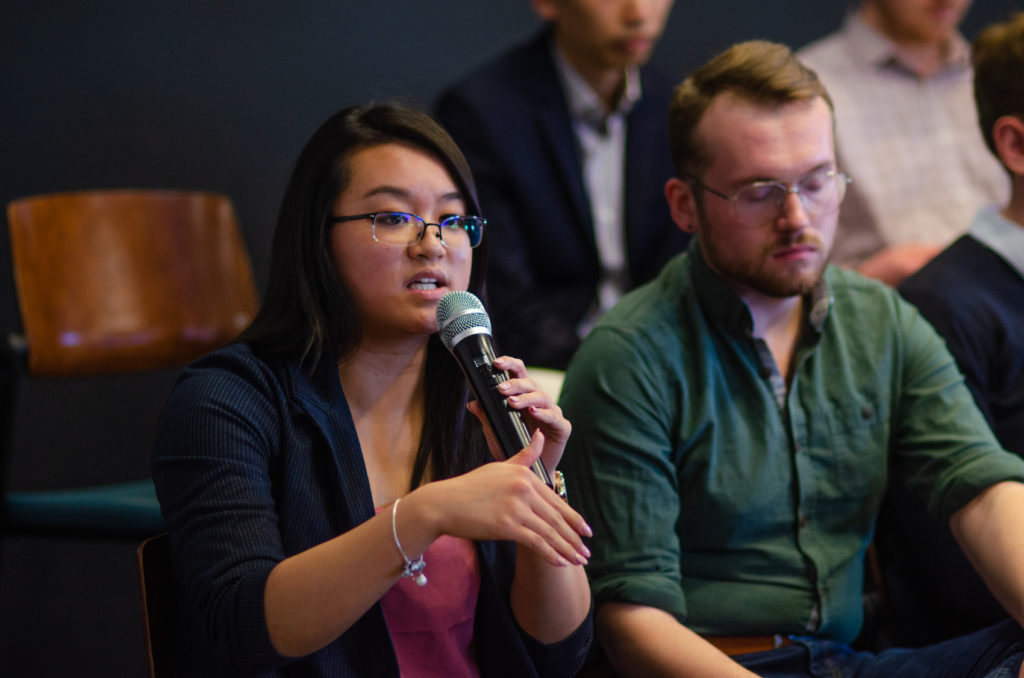
In a question posed to all candidates, an audience member asked how the Students’ Union would work to better support faculty associations and student groups.
Krahn said better support comes down to consolidating crucial information and to do so, she said she would finish a student group handbook, an initiative “that has been promised for years,” but hasn’t happened.
Problems with the Students’ Union audits were, for Tse, at the root of this issue. Citing a “terrible audit” this year, she said there was a problem with approving Faculty Association funding on time and said she would work to resolve this problem.
— Khadra Ahmed
VPA candidates asked about working with student groups and weekend midterms
In a question asked to all candidates, a student in the audience asked what candidates would do to further support student groups and faculty associations (FAs).
David Draper, third-year honour political science and sociology student, said that “the biggest thing” is making sure the Students’ Union has a presence and is “lifting up the voices” of the FAs.
“When you’re going into an advocacy meeting, when you’re having an event, we’re there supporting you, we’re there being able to help you with whatever you need help with,” he said.
He added that he wants to be there with FAs to make sure they have “larger governance push behind them” when advocating.
Eric Einarson, fourth-year chemistry student and president of the Campus Saint-Jean faculty association AUFSJ, said he would start by centralizing resources to make it easier to be successful. He would also like to have the SU executives and VPA be more “proactive” with student groups.
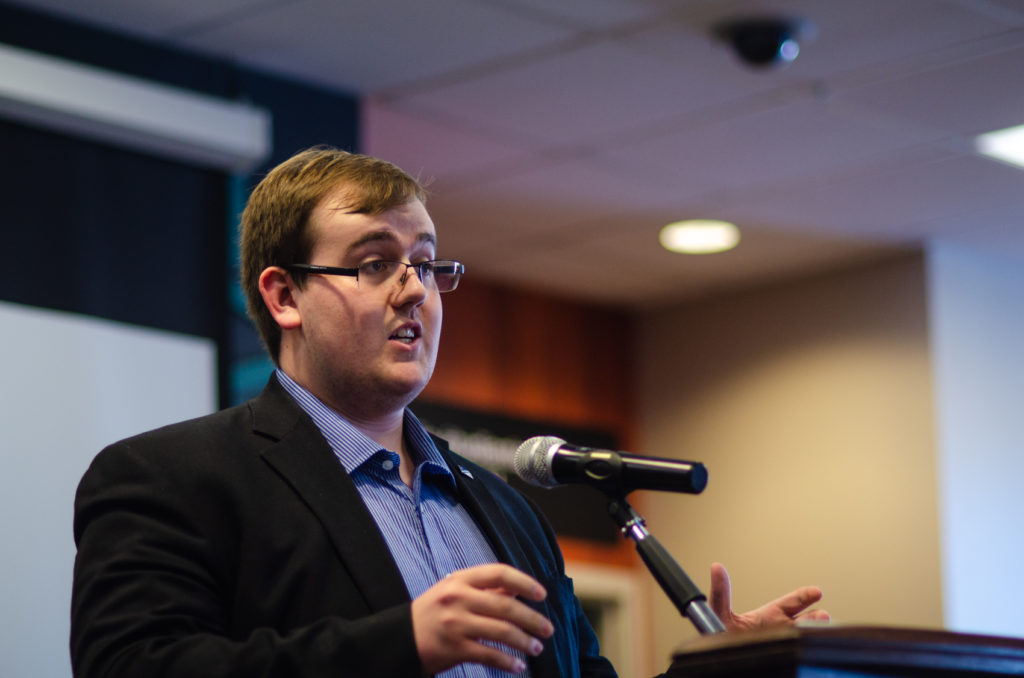
“Rather than waiting for student groups and faculty associations to reach out, [the] vice-president (academic) should be taking the time to reach out to faculty associations and make sure they’re going the best they can to support them,” he said.
In his opening remarks, Draper mentioned the idea of getting rid of midterms on Saturdays. When questioned on how he would make it possible, especially for consolidated classes, he said he would advocate to the university through General Faculties Council (GFC) and to departments and chairs. In faculties where there might be a backlash, such as engineering, he said it’s “about giving power back to the students.”
“Right now they have no choice about if they can have weekend midterms or not,” he said.
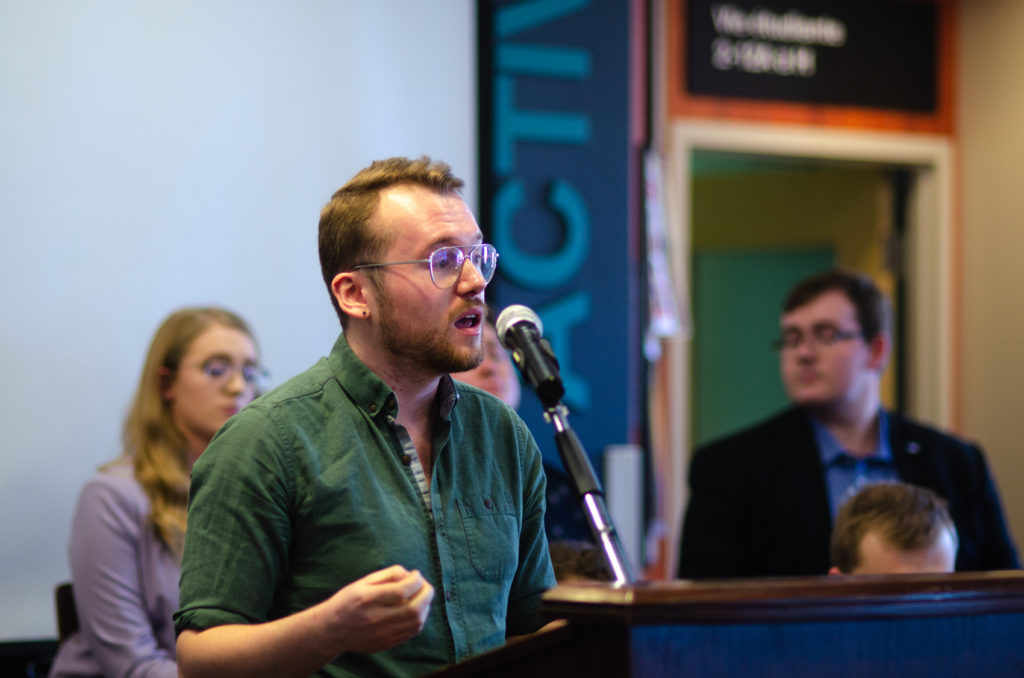
Einarson said he wouldn’t ban weekend midterms, which he said might be “controversial,” because students are able to plan for then and it doesn’t force classes to have late-night midterms.
“Would you rather do an early-morning midterm on a Saturday morning, 9:00 a.m. or would you rather have to stay at school until 7:00, 8:00, 9:00 p.m, on a weekday?” he asked.
— Kate Turner
Board of Governors candidates discuss plans for representing students
The candidates for Board of Governors differed on whether to include CSJ-specific ideas or not.
Albert Hu, third-year medical student in the Doctor of Medicine (MD) undergraduate professional program talked about cutting funding that is unrelated to student education. He proposed to use funds from the university’s community donation programs to “offset” some of the pressure on student tuition increases. He did not mention any Campus Saint-Jean specific plans.
He also plans to implement a more comprehensive risk management policy that prevents student abuse and assault.
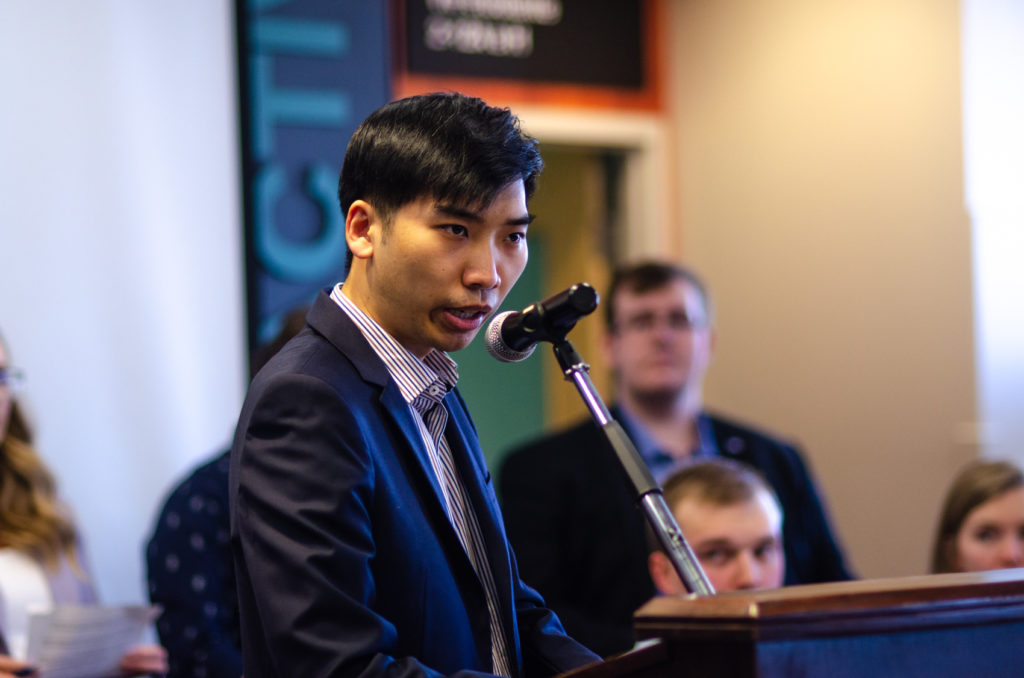
Dave Konrad, second-year bachelor of environmental and conservation sciences student majoring in human dimensions of environmental management and ALES councillor on Students’ Council, promised to advocate for prioritizing cultural value over economic value when considering class sizes.
He also said he would demand Indigenous representation on BoG alongside recognizing the importance of recommendations provided by the Students’ Council sub-committee Aboriginal Relations and Reconciliation Committee.
In a question for all candidates, an audience member asked how the Students’ Union would better support student representative associations and faculty associations.
In his response, Konrad revealed his plan to consult with the faculty association at Campus Saint-Jean, AUFSJ, to introduce gender-neutral washrooms and work with the Aboriginal Students’ Council and sign on their five declarative points for all candidates.
He also wants to “run a student engagement campaign so that more people are aware, and care and value student advocacy.”
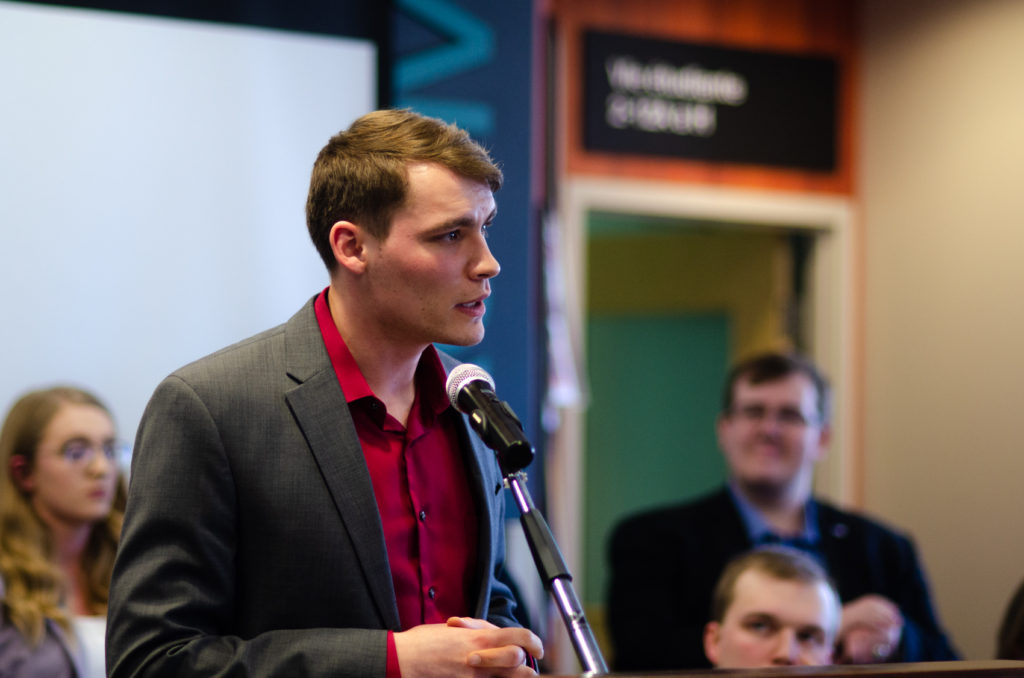
Hu began by stating that this issue was outside the portfolio of the board of governors representative. However, he stated that each faculty knows best, and proposed to make each faculty independent.
He mentioned that in his experience in working for the medical faculty association, the members feel like they are disconnected from the workings of the SU.
— Shaunak Mistry




